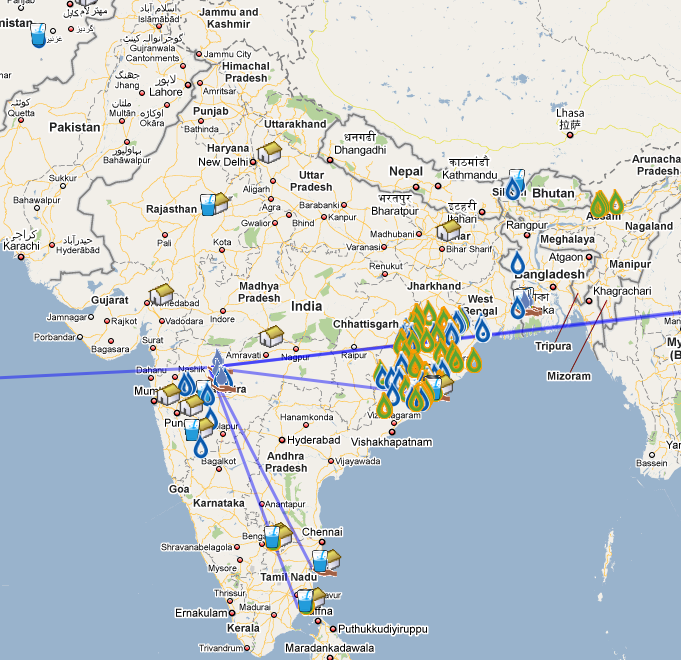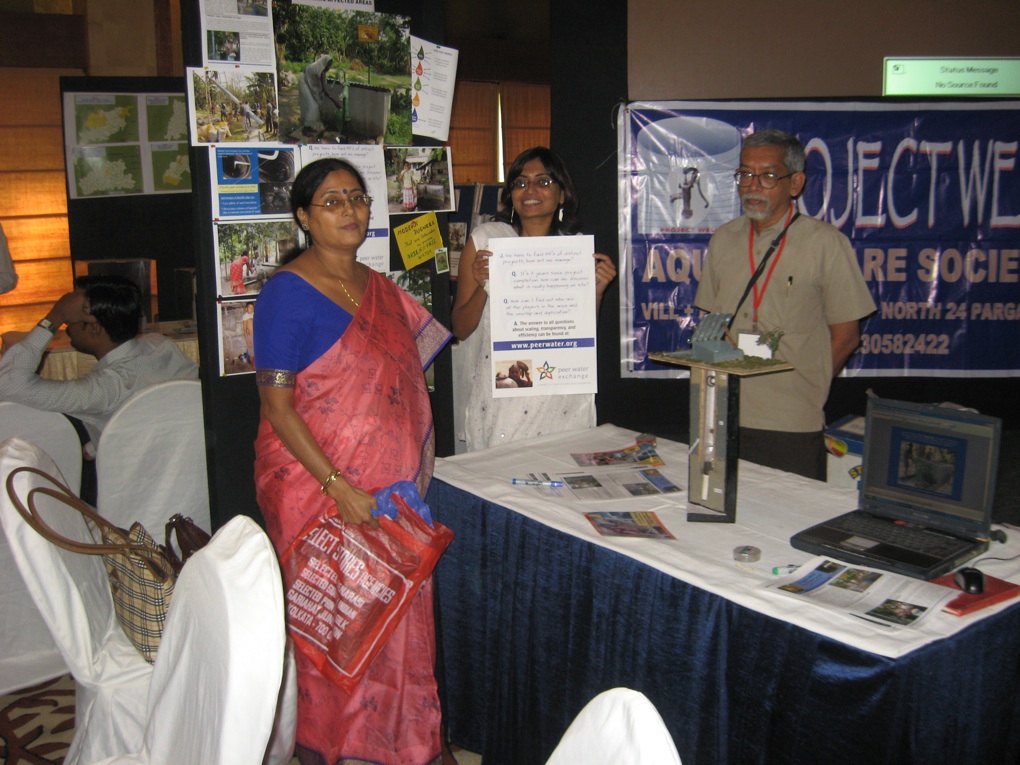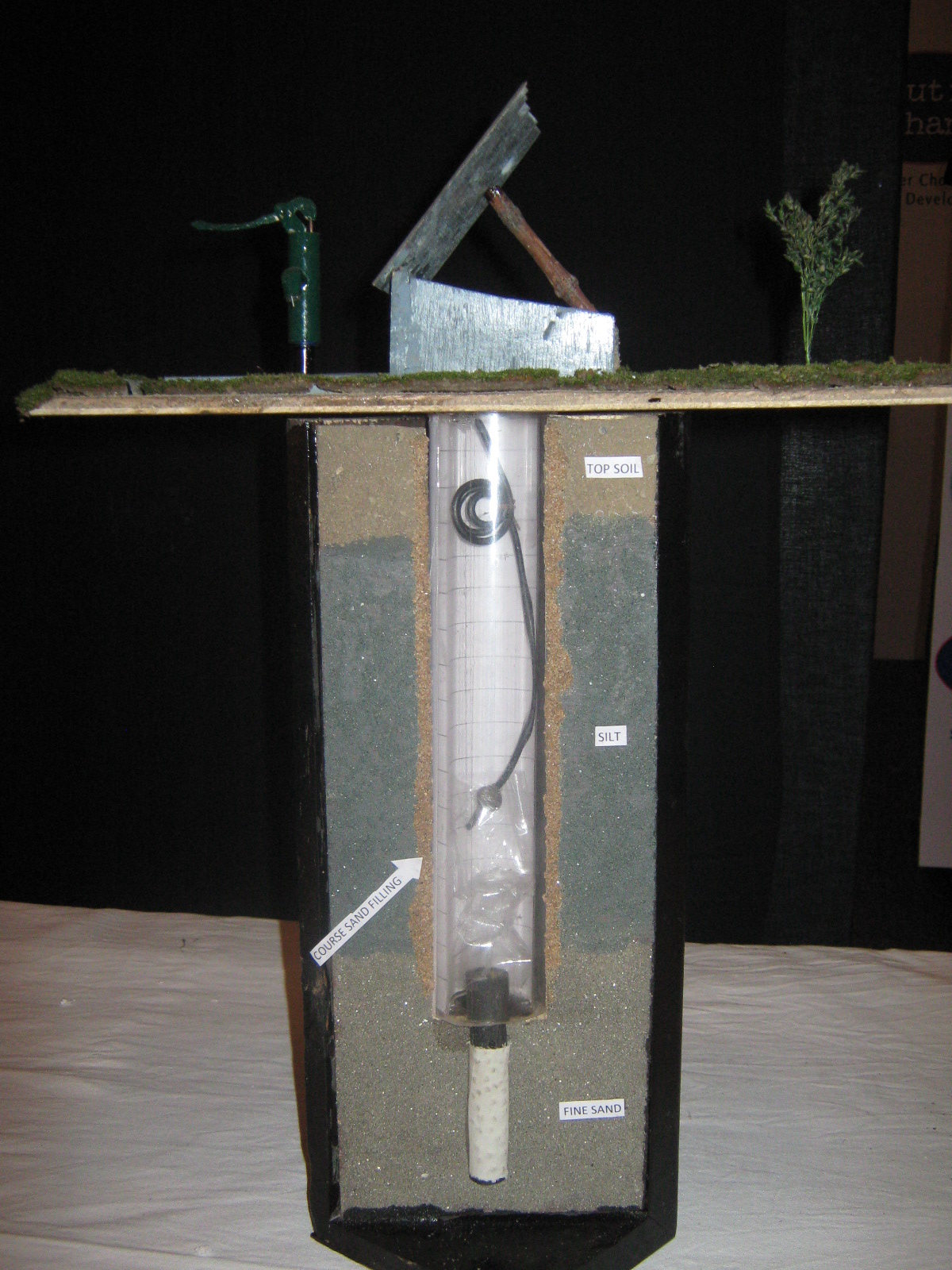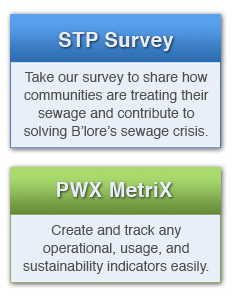Quotes
from members, experts, and process innovators.
Nonprofits Use “Human Network” To Reduce Arsenic Poisoning And Help Solve India Water Crisis
28 October 2009Jane Liaw
Science Writer
The people tackling the most serious water problems in India are learning about a powerful “human network” that could catapult them ahead in their quest to provide clean water to needy populations. This web-based network, Peer Water Exchange (PWX), is being demonstrated Oct. 30 at the Annual Water Community Forum of India in Kolkata. Attendees will also learn about a modern dugwell that addresses the West Bengal arsenic crisis.
Millions of Indians do not have access to potable water and adequate sanitation. Yet water projects in India will not progress effectively unless they harness resources to share findings, illuminate failures and eliminate redundancy.
“We really don’t need any new technologies to provide people with clean water,” says Rajesh Shah, PWX architect. “We know what works: small projects that are ‘owned’ by a properly trained community that understands the issue. PWX is a new approach in which we can select, fund, manage and follow up on thousands of small projects that are needed to solve the water crisis.”

PWX was created by the Blue Planet Run Foundation in California and runs out of Bangalore. Groups working on water issues share project details and apply for funding on the site. Participants review and grade other organizations, so the traditional responsibilities of the funder are eased, administration needs are streamlined, and results are easily scalable.
The more groups join PWX, the more it will truly represent the landscape of water projects. The hope is that the government will also participate. “PWX is a hub for water. It’s important that all the major players get involved,” Shah says.
Water expert Ashok Ghosh of A.N. College in Patna agrees. “Right now the NGOs don’t know what the government is doing, the work is fragmented and there is no convergence.”
 Non-profit Project Well provides safe drinking water to arsenic-afflicted West Bengal villages, and has been active on PWX since 2006. Project Well has been able to expand its work in the region through the support of PWX. Representatives of its partner in West Bengal, Aqua Welfare Society, are giving a demonstration of PWX at the Kolkata conference of water experts in the hopes that other groups will take advantage of the online tool.
Non-profit Project Well provides safe drinking water to arsenic-afflicted West Bengal villages, and has been active on PWX since 2006. Project Well has been able to expand its work in the region through the support of PWX. Representatives of its partner in West Bengal, Aqua Welfare Society, are giving a demonstration of PWX at the Kolkata conference of water experts in the hopes that other groups will take advantage of the online tool.

“Of all pollutants around the world, with the possible exception of tobacco smoke, arsenic is probably the worst,” says Richard Wilson, a Harvard University arsenic expert.
PWX provides knowledge from experience that cannot be gleaned from academic studies. Knowing how to navigate local cultural waters is either learned slowly in the field or quickly from other groups who have faced the same challenges. Suggestions from the PWX community have led Project Well to hire a local awareness program director who explains the importance of drinking arsenic-free water and other water issues to villagers.
Tackling an enormous and complex problem such as the water crisis is daunting, but PWX is making great strides in increasing synergy among projects and giving small groups a voice. In four years, it has grown to include about 60 organisations worldwide. PWX members have peer-reviewed over $2MM (Rs. 8 crores) in applications. Members are using PWX to manage all their projects, and PWX handles more than $9MM (Rs. 36 crores) worth of water and sanitation projects in over 600 communities around the world – readily seen on its interactive map. Now PWX is seeking additional funders who want to invest in a transparent, efficient, and scalable infrastructure, to take the network to the next level.
“PWX is fantastic,” Project Well director Meera Hira-Smith says. “And groups can track their own progress—in 10 years they will be able to measure the impact of their good work.”
For more information on PWX, please visit the website.
For more information on Project Well, please visit www.projectwellusa.org.

How PWX Can Help You
PWX Snapshot
- Communities Assisted: 3267
- Number of Countries: 42
- People Benefited: ~ 1,524,810
- Programs/Projects: 2112 ($52M)
- Projects in Progress: 140
- STPs Tracked (map): 65 (list)
- Community Contribution: 8.9%
- Plans Peer Reviewed: 249 ($11M)
- Peer-Approved Plans - Needing Funds: 26
News Highlights
- Farewell Jin Zidell - A Monumental Figure In Water Jun 16, 2023
- Rain Centre Monitors Chennai's Water Table Mar 18, 2018
- Picture (of) 10 years of connecting WASH people Mar 16, 2016
- Let The Children Lead Bangalore Out Of Its Sewage Mess Feb 26, 2016
- Stopping Sewage from entering Lakes at Kaikondarahalli Kere Habba Jan 09, 2016
Get Involved
- Join PWX and use it to manage your water investment portfolio or make your project history come alive.
- Donate and maximize the impact of your contribution using PWX's peer-review and long-term impact assessment processes.
- Volunteer as a citizen journalist and help verify our progress against the water crisis!
Team
- The team behind PWX
- An interactive logo collage and list combo of the network
- An interactive list of our 136 members.
Contact
© 2006-2020 Peer Water Exchange
